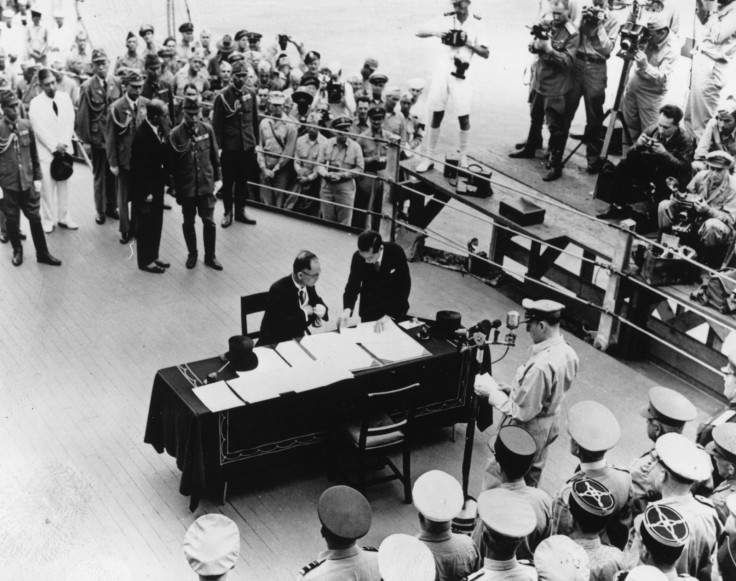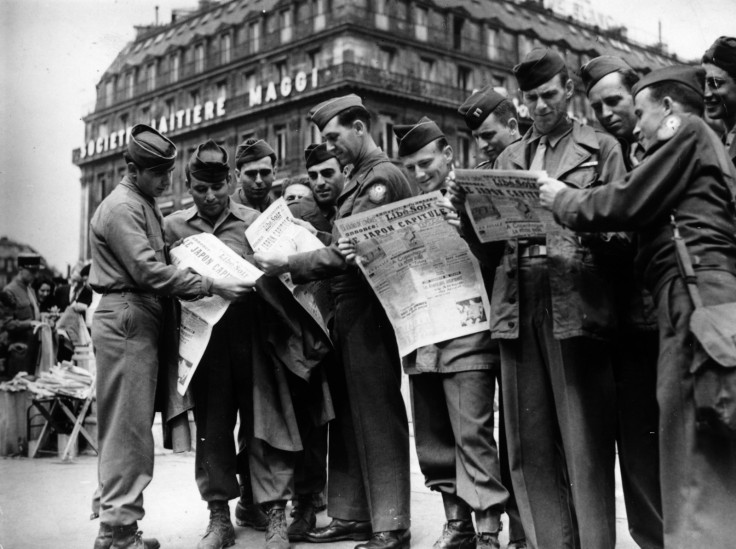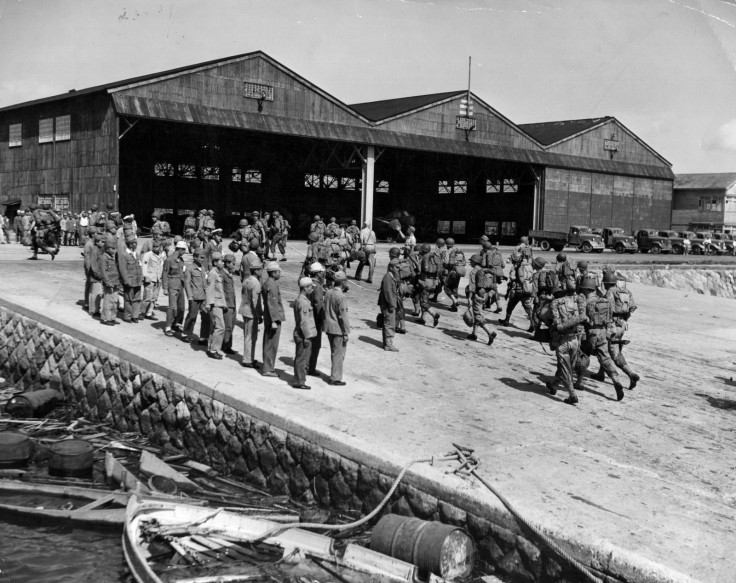Japanese Surrender in WWII: How was the Announcement Received in Japan?

Sixty-nine years ago today, American citizens took to the streets to celebrate the announcement of Japan's surrender in the Second World War.
On the afternoon of 14 August 1945, a nationwide broadcast was aired by President Truman, stating that Emperor Hirohito had accepted the terms of the Potsdam Declaration, a statement that called for the surrender of all Japanese armed forces during World War II.
The formal signing of the document would occur weeks later on 2 September – when the official Victory Day, or VJ Day, is celebrated.
As word of the surrender spread, the celebrations began. Life magazine reported that Americans acted as if "joy had been rationed and saved up." In New York, the victory blazed across a headline on the news ticker at One Times Square: "*** OFFICIAL TRUMAN ANNOUNCES JAPANESE SURRENDER ***" - with six asterisks representing the branches of the US armed forces.
For most Japanese, however, the day not only marks the country's defeat, but also a rebirth from militarism to democracy. It serves the purpose of handing down the reality of war to future generations, of both the suffering experienced by the Japanese and the suffering Japan inflicted on others.
Speaking to IBTimes UK, Dr Griseldis Kirsch, a lecturer in contemporary Japanese culture at the School of Oriental and African Studies in London, explained how the event was received in Japan – and what emotions it engenders today.

Immediate disbelief
"What is clear for the wartime is that people thought that surrender was dishonourable, and that self-sacrifice for the greater good – ie, the nation, the Emperor and the other Japanese, was more desirable," Dr Kirsch said.
The most immediate reaction, however, depended on the background of the individual. Education provided a communication barrier, and the news of the surrender would have taken time to filter to all segments of the population.
"The declaration of surrender read out by the Emperor is phrased in very formal Japanese and not necessarily easy to understand for everybody," Dr Kirsch explained. "Post-war myths usually construct a nation weeping in front of the radio receivers, but I don't think this is necessarily true."
When Emperor Hirohito announced the surrender on a radio broadcast, shock and disbelief was widespread. This was the first time many Japanese citizens had heard the voice of their leader, who, revered as a kind of deity, had only really been seen in pictures.
"Higher ranking officers and those who knew immediately committed suicide," she added. "But for the general audience I guess there was a lot of doubt about the truth of this message."
Confronting the war
"In general, a lot of what was made of the surrender was also subject to post-war myth-making, left-wing as well as right-wing, Japanese as well as American," Dr Kirsch explained.
Both Japan and West Germany had very active left-wing militant groups in the 1960s and 1970s, it became acceptable in West Germany to confront the past head-on. But in Japan, this shift did not happen.

"Partially, this is due to the fact that politicians in Japan come from political dynasties that go back to wartime politicians – Prime Minister Abe Shinzô being the grandson of Kishi Nobusuke, a former PM who was initially charged as a class A war criminal, but was let off the hook."
As with other members of the former Japanese government, Kishi was held at Sugamo Prison by the order of the Supreme Commander of the Allied Powers. He was released in 1948 and was never indicted or tried by the International Military Tribunal for the Far East.
"So, the common opinion is that the Japanese were themselves victims to their overly powerful military at the time - and to the American air raids, hence the myth-making."
"Most teachers in the post-war period, however, were left-wing, and the left-wing rejected the victim-narrative and did not think that the war was just," Dr Kirsch explained. "The right-wing - which is incredibly loud in Japan - thinks the war was just, and it was fought for a just cause and in the right way."
Modern-day Japan
"The surrender also coincides with obon, a Buddhist festival and public holiday in honour of the dead," Dr Kirsch explained, adding that by and large, this is more important to ordinary Japanese citizens as they would have time off to see their families.
"Sixty-nine years after the end of the war, I don't think the younger generation cares that much about it anyway. The older generation that is in charge of the government, however, does care quite a lot and tries to actively instil a different image of Japan, one that is not troubled by the war."
"But winning the war makes for better commemorations than losing it."
© Copyright IBTimes 2025. All rights reserved.






















